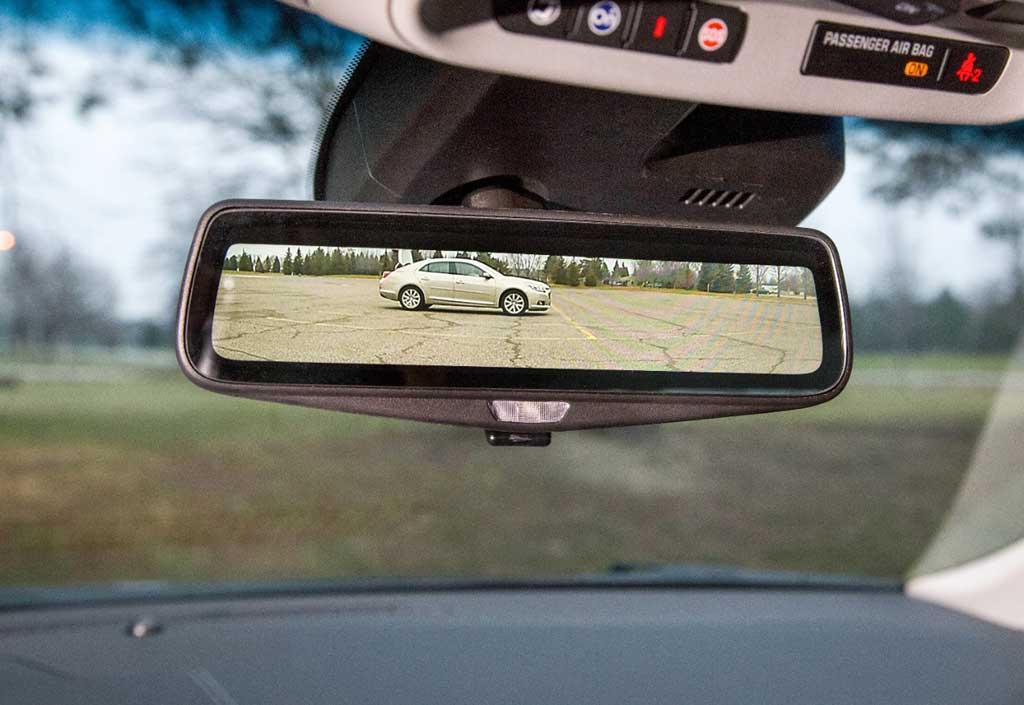Safety sells, but most motorists
would still rather ride in comfort
By Jim Gorzelany
CTW Features
Until recently limited to only the costliest luxury models, an increasing number of cars and trucks in virtually all size and price classes are offering an array of advanced safety systems, including compact cars and even subcompact crossover SUVs. Apparently new-vehicle shoppers are apparently taking notice in a big way.
According to data compiled by the market research firm AutoPacific in Tustin, Calif., 90 percent of consumers surveyed rated such safety features as being either “very” or “extremely important” with regard to their next new-vehicle purchase. That’s up from 88 percent in 2014 and 82 percent in 2013. Car buyers now rank safety features as sixth in importance among 62 separate vehicle attributes, trumping such stalwarts as reliability, visibility, and ride and handling qualities.
The most wanted among the current generation of accident avoidance systems is a blind-spot warning system that alerts drivers to the presence of other cars in adjacent lanes, ranking third on the list and being favored by 65 percent of over 66,000 new vehicle buyers surveyed in AutoPacific’s annual New Vehicle Satisfaction Survey. Ranking fifth among consumers, with 59 percent expressing an interest, is technology that will automatically slam on the brakes when needed to avoid striking pedestrians and other cars in a vehicle’s path while a vehicle is backing up.
“Safety has always been important to consumers, but as we’ve seen more advanced safety features come to market, we have also seen an increase in the percentage of consumers who rate safety features of high importance when shopping for a new vehicle,” says Dan Hall, vice president of AutoPacific.
At that, however, the majority of the items among AutoPacific’s list of the most desired features are of the comfort and convenience variety, with the top two being linked to a motorist’s bottom line, so to speak. A power driver’s seat is the most sought after new-vehicle feature among 79 percent of respondents, with heated front seats favored by 70 percent of those queried.
Other most coveted new-car accoutrements include easy-to-clean upholstery/carpeting and built-in USB ports to connect portable devices (with each desired by 64 percent of respondents), an in-dash navigation system (61 percent), a heated anti-fog windshield and power passenger seat (60 percent each), leather seats and hidden storage compartments (58 percent each), voice-activated controls and a wireless Bluetooth phone interface (56 percent each) and a push-button entry/ignition system (55 percent).
On the other hand, today’s car buyers seem less interested in autonomous driving technology, based on the research firm’s related Future Attribute Demand Study. Among such features currently available, self-parking systems, which can automatically steer a vehicle into a parking space, are sought after by only 22 percent of those surveyed. Advanced cruise control hardware that can both maintain a set speed and a safe distance from traffic ahead on the highway and likewise operate in stop-and-go situations was preferred by just 16 percent of respondents.
What’s more, consumers are expressing even less interest in advanced self-driving technologies being planned for models coming down the road. Autopilot cruising technology that affords hands-free driving on the highway under certain conditions was noted as being of interest by just 31 percent of respondents, with fully autonomous systems (expected to debut in the next decade) that can operate entirely without a motorist’s input anticipated by a mere 11 percent of car buyers.
“Driver assistance safety features are a stepping-stone to autonomous driving and have been well received by consumers,” says Hall. “But consumers aren’t quite ready for fully autonomous driving.”
© CTW Features

